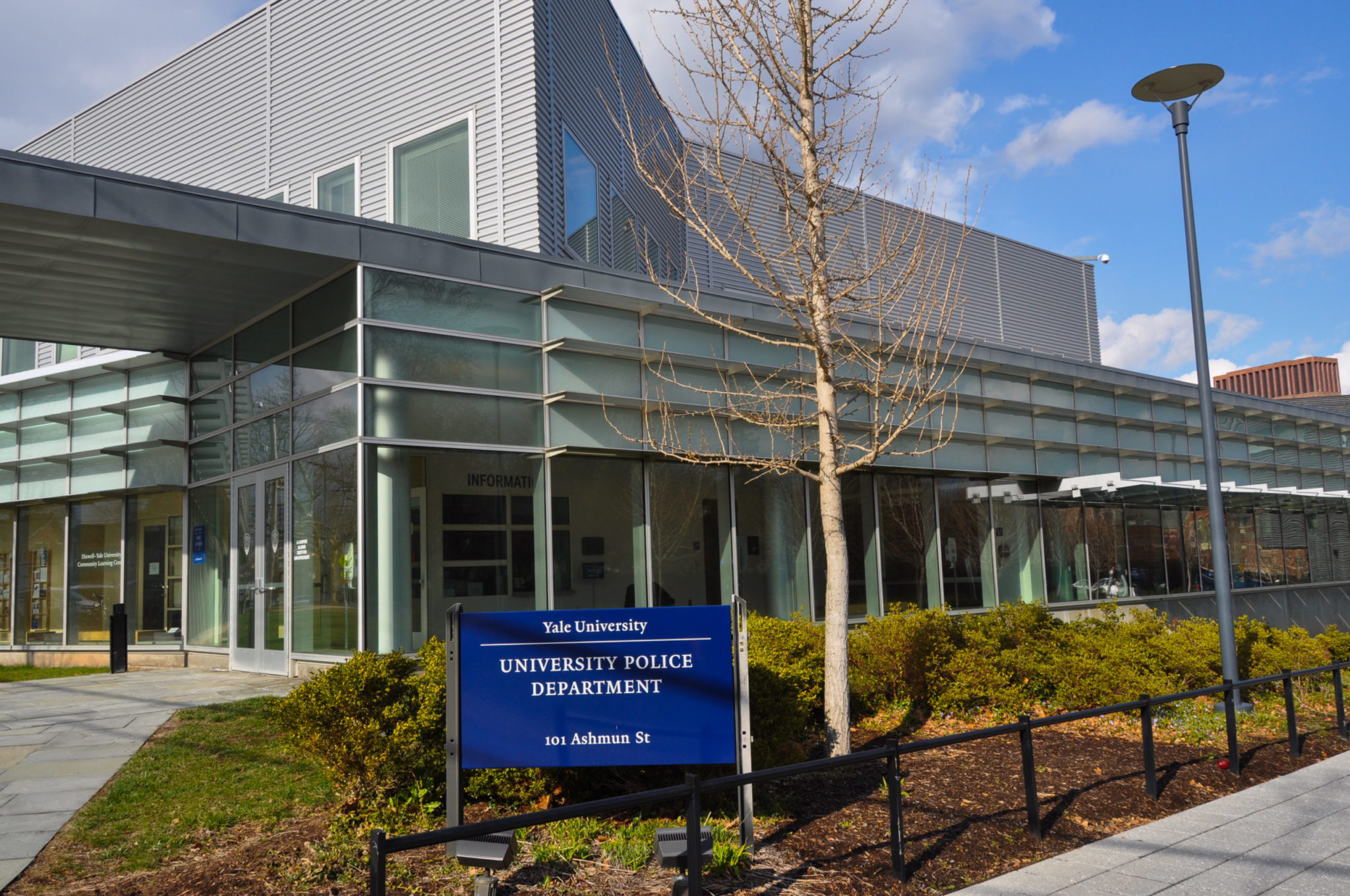
Madelyn Kumar
Last month, Connecticut Freedom of Information Commission Hearing Officer Danielle McGee recommended that the state deny Sarah Braasch access to the Yale Police Department’s body cam footage from the night that she called the agency’s non-emergency line in 2018.
The state’s FOIA commission will vote on McGee’s proposal during their upcoming meeting on Sept. 9. Braasch, a white woman, made national headlines after encountering a sleeping individual — Lolade Siyonbola GRD ’19, who is Black — in the common room adjacent to her dorm room in the Hall of Graduate Studies and calling the YPD. In the flurry of media attention, Braasch said she sought to “exonerate” herself and her “lifelong human and civil rights career” by pursuing police footage that she believes will clear her name.
She filed a request for the footage through the state’s FOIA commission, as the YPD initially denied her access to the footage. The YPD has claimed an exemption from releasing the footage due to a clause in the Freedom of Information Act that pertains to records that include uncorroborated criminal allegations, like the one Braasch levied against Siyonbola. Because Braasch falsely claimed that Siyonbola trespassed or otherwise intended to harass her, the YPD argued that her uncorroborated criminal allegation exempts the department from releasing their footage upon request.
McGee reiterated the YPD’s argument in her proposed decision and noted that the records Braasch requested were part of an investigation prompted by an uncorroborated crime allegation. According to the document, the camera record contains Braasch’s interactions with YPD officers present at the scene and the “recitation of her allegations” — footage of Braasch accusing Siyanbola of trespassing. Although Braasch has contended that a stranger was indeed resting in her common room, McGee argued that the validity of this allegation is irrelevant to adjudicating whether the YPD’s footage should be released.
“The proposed decision by [McGee] … is a travesty of justice,” Braasch said. “Many other states have done away with similar provisions [having to do with uncorroborated allegations] of state law, because they make it too easy for police departments to deny the public access to police body camera footage that they should rightly have.”
Braasch wrote in an email that the state “incentivizes” police to prevent footage holding their actions accountable from being made public. After McGee released her tentative decision, Braasch and her legal counsel argued that the case sets a dangerous precedent for police accountability.
Jay Wolman, who has represented Braasch during the FOIA proceedings, doubled down on Braasch’s claim that her case has broader implications.
“The arrogance and secrecy [Yale] employs here is why cops can assault or kill people, who are disproportionately black, with impunity,” Wolman wrote in an email.
Still, according to McGee, allegations of trespass are uncorroborated, as the record “overwhelmingly supports” that Braasch’s allegations of trespass do not hold up because Siyonbola — who was a Yale student at the time — did not trespass. In an email to the News, Braasch and Wolman argued that Braasch did not call the YPD to report criminal activity, although the YPD responded as though she had.
University spokesperson Karen Peart declined to comment.
The committee will reach a final decision when it convenes as a whole on Sept. 9.
John Besche | john.besche@yale.edu
Correction September 3, 2020: A previous version of this article misspelled the name of Braasch’s attorney. This article has been updated to reflect his name accurately. This article has also been updated to clarify Braasch’s argument that she did not intend to report criminal report to YPD.







